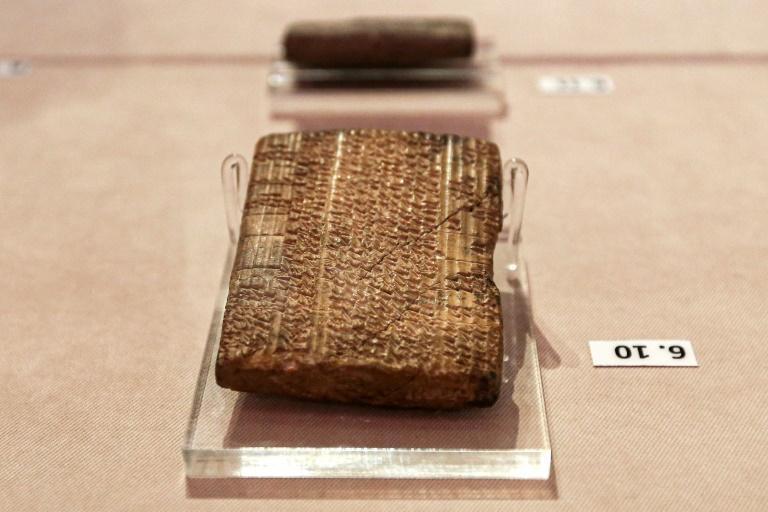Iran says thousands of ancient clay tablets returned from US
TEHRAN

Iran says it has received thousands of Achaemenid-era clay tablets from the United States in the fifth such instalment, following a drawn-out legal effort to repatriate the antiquities.
"After the two-year follow-up of the government... the Achaemenid tablets confiscated by the American government were returned to the country," said a statement posted on Iran's presidency website.
The 3,506 tablets were repatriated on the plane that also brought home the Iranian delegation from New York after it attended the United Nations General Assembly.
This is the fifth batch of such antiquities returned to the Islamic republic.
"We hope that the rest of these tablets will be returned as soon as possible," Iranian President Ebrahim Raisi said after returning from New York on Sept. 221.
Found at the ruins of Persepolis, the capital of the Persian Achaemenid Empire which ruled from the 6th to 4th centuries B.C. in southern Iran, the repatriated tablets display how the ancient society was organized and its economy managed.
The tablets were returned to Iran by the University of Chicago's Institute for the Study of Ancient Cultures, West Asia & North Africa, formerly known as Oriental Institute.
In the 1930s, the university had received on loan around 30,000 tablets or tablet fragments found at Persepolis for research purposes, Iranian media previously reported.
A large portion of the tablets were returned in three batches between 1948 and 2004 before the rest were blocked by legal action initiated by American survivors of an attack in Israel in 1997 carried out by the Palestinian group Hamas.
Blaming Tehran for supporting the armed group, the plaintiffs demanded the seizure of the tablets and their sale put towards the $71.5 million that Iran was ordered to pay in the case.
The proceedings only ended in February 2018 when a U.S. Supreme Court decision banned the seizure of the works. But the reimposition of U.S. sanctions on the Islamic republic since August 2018 has complicated the return of the antiquities to Iran.
In October 2019, the National Museum of Iran put on display around 300 similar tablets out of 1,783 that were returned from the United States earlier that year in the fourth stage of restitution.
















